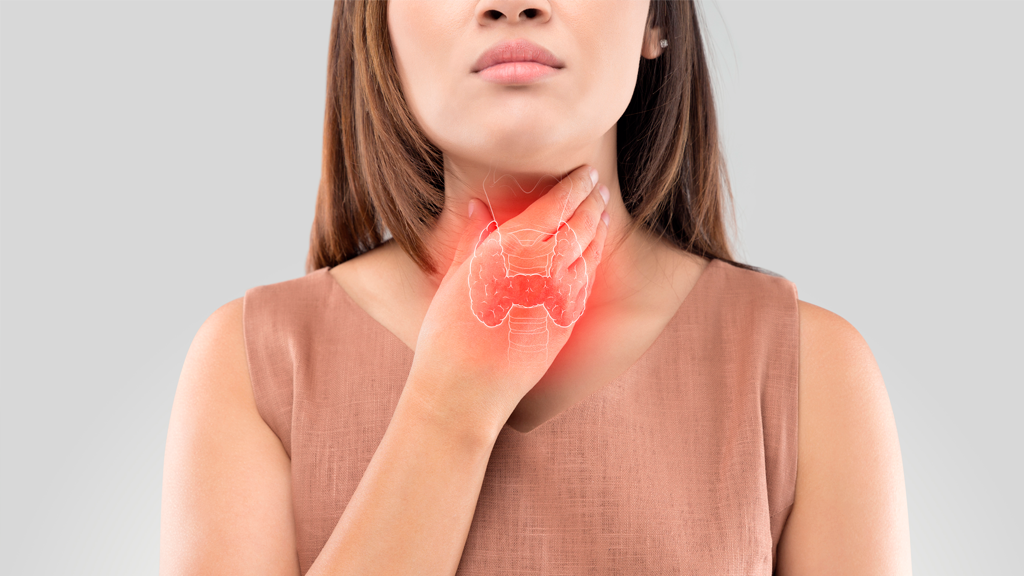Thyroid Testing and Treatment: Are You Getting The Care You Need?
An interesting interview was recently published on Medscape that explores using both levothyroxine (T4) AND liothyronine (T3) to treat hypothyroidism. While this is old news for Naturopathic Doctors and other functional medicine practitioners, in most medical offices levothyroxine is typically the only treatment offered for hypothyroidism. With such a narrow approach, many people find that even though their lab values look like things are improving with levothyroxine, they still don’t actually feel that much better. So what’s going on?
Understanding thyroid health can be tricky. Most medical professionals have long been taught that the only thyroid test that matters is the thyroid stimulating hormone (TSH). This is in spite of the fact that the American Thyroid Association estimates that screening with TSH alone misses roughly 7% of individuals with overt thyroid dysfunction. A more complete lab assessment of thyroid function typically starts by checking TSH levels as well as Free T4 and Free T3, and may look at thyroid antibodies as well if there is a suspicion of autoimmune issues.
Before going any further though, let’s do a quick review of thyroid physiology. TSH is the hormonal signal sent from the pituitary gland to the thyroid gland to tell it how much thyroid hormone to synthesize and release. TSH functions almost like a thermostat, in that it gives a general sense of whether or not the body thinks there is too much, not enough, or just the right amount of thyroid hormone in circulation. TSH also functions as an early warning system and is often abnormal before other thyroid tests fall out of range. When TSH is elevated, the body is signaling that an increase in the production and release of thyroid hormone is necessary. If TSH is very low, the body is scaling back on any further production because there is adequate or excess thyroid hormone already present.
Once the thyroid gets the signal from TSH, it produces a blend of active and inactive thyroid hormone. Of the thyroid hormone that is made and released at the level of the thyroid, roughly 90% is in the inactive hormone, T4, and the other 10% is the active hormone T3. As T4 hormone makes its way around the body, it is eventually converted to either the bioactive T3 or the less active Reverse T3 (rT3) in the cells of the liver, kidney, brain and skeletal muscles. T3 is the form of thyroid hormone that actually spurs metabolic activity, and without adequate function of T3, we see the hallmark symptoms of hypothyroidism that includes any of the following:
Fatigue and weakness: Feeling excessively tired, even after getting enough sleep, is a common symptom of hypothyroidism. You may also experience general weakness and a lack of energy.
Weight gain: Unexplained weight gain or difficulty in losing weight, despite normal eating habits, can be a sign of hypothyroidism. This is because the decreased production of thyroid hormones slows down the body's metabolic rate.
Cold intolerance: Feeling unusually cold, even in normal temperatures, is a common symptom of hypothyroidism. Your body's decreased metabolic rate affects its ability to regulate body temperature effectively.
Dry skin and hair: Hypothyroidism can cause dry, itchy skin and brittle hair that is prone to breakage. Your skin may also become pale and feel cool to the touch.
Constipation: A slowed-down digestive system can lead to constipation, which is a common symptom of hypothyroidism. This occurs because the reduced thyroid hormones affect the muscle contractions in the digestive tract.
Depression and mood changes: Hypothyroidism can impact your mood and mental well-being. It is not uncommon to experience feelings of depression, irritability, and a general lack of interest or motivation.
Muscle aches and joint pain: Some individuals with hypothyroidism may experience muscle aches, stiffness, and joint pain. These symptoms can be generalized or localized to specific areas of the body.
Menstrual irregularities: Women with hypothyroidism may experience heavier or prolonged menstrual periods, or their periods may become less frequent or irregular.
Hoarseness and voice changes: A low thyroid hormone level can cause swelling of the vocal cords, resulting in hoarseness or other changes in the voice.
Elevated cholesterol levels: Hypothyroidism can lead to an increase in blood cholesterol levels. This may be detected during routine blood tests.
It's important to note that these symptoms can vary among individuals, and some people may experience only a few of these symptoms or have different manifestations of hypothyroidism so it's best to consult a healthcare professional for a proper diagnosis and appropriate treatment.
If you’re looking for a more functional approach towards managing thyroid concerns, or are simply looking for a doctor that takes a holistic approach to your health, we’re here to help. Our licensed Naturopathic Doctors utilize comprehensive testing and treatment options in order to diagnose and treat the underlying cause of your health concerns. Call us today at 707-840-0556 for more information.
Resources:

